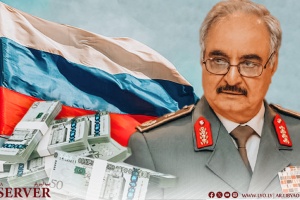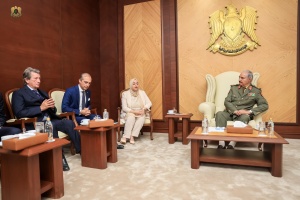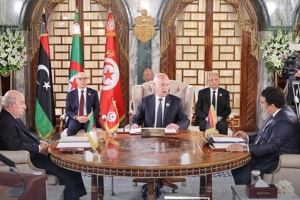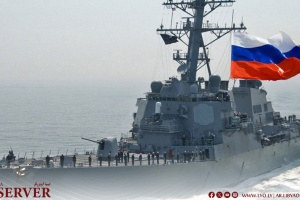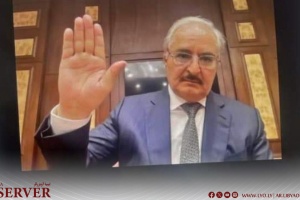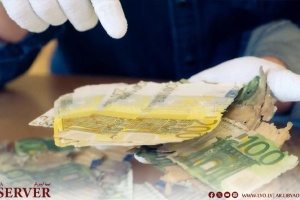Tunisia says the video was propaganda
Khalifa Haftar special forces exhibit debunked as ‘propaganda scheme’
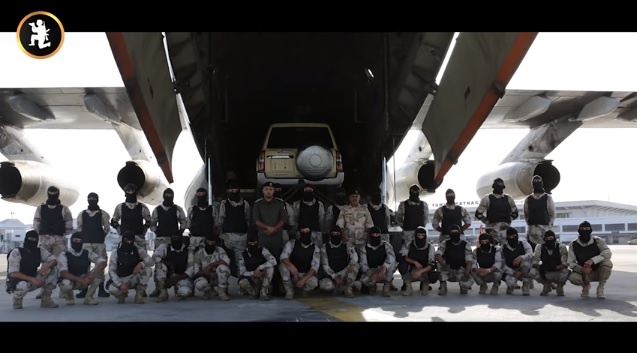
Khalifa Haftar - warlord and self-proclaimed commander-in-chief has caused a stir on a recent visit to Tunisia. A video has emerged from the visit in which several dozen special forces serving under him are featured in what appears to be a desperate propaganda scheme.
Tunisian president Beji Caid Al-Essebsi received Khalifa Haftar last week in a meeting that was intended to help facilitate the ongoing political dialogue and to end current political strife in Libya.
However, Khalifa Haftar took it as an opportunity to promote and sell his image by showcasing a special forces’ exhibition which portrayed the meeting as a power display rather than a diplomatic meeting.
This move by Haftar unsettled authorities in Tunisia as Anas al-Maqadi, General Director of Security Forces responsible for Presidential Security in Tunisia responded to the emerged video by calling it a ‘media propaganda’ meant as a message to parties inside Libya.
Furthermore, Al-Maqadi clarified to Tunisia’s Mosaique FM Radio that in the meeting itself, which took place in Carthage Palace, Haftar was only accompanied by 4 security officers wearing civilian attire while the remaining 32 special forces personnel remained in the presidential airport.
The video, which was posted online by Khalifa Haftar’s media office, displays heavily edited footage and several staged sceneries. An exhibition of this nature is not only desperate but even more so unnecessary for a diplomatic meeting. However as Al-Maqadi pointed out, the intent behind this manoeuvre was to send a political message to parties inside Libya as well the international community.
Haftar is trying signal that his power grip is above all in Libya which he intends to serve as evidence of his capabilities and legitimacy - which is very much contested. Haftar has in a string of events shown his objectives of consolidating all power and seating himself as the ruler of Libya - specifically in his recent attempt to gather signatories from Libyans in areas under his control in which they recommend him to be the ‘President of Libya’.
Furthermore he has claimed religious credibility by using the Madkhalis (Neo- Salafis) as puppets preaching in defence of his legitimacy and proclaiming that these signatories are more in line with Islamic guidelines than democratic elections.
Despite these schemes and campaigns, the tune that Haftar is singing to does not remain unknown to most Libyans - an endless attempt at power grab and consolidation of his rule without any democratic or legal justification.


